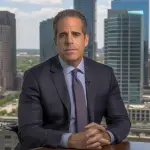A transgender teacher in Texas faced intense backlash after a video of her discussing her transition with students went viral online. The clip, shared by conservative activists, led to calls for her removal and ultimately forced her resignation. Parents and lawmakers argued that such discussions have no place in public schools, claiming they push radical ideologies on impressionable children.
The teacher, Rosalyn Sandri, had worked at Red Oak High School for three years without issues until the video gained millions of views. Conservative accounts accused her of indoctrinating students by sharing her personal journey. State Rep. Brian Harrison demanded her immediate firing, calling the situation “an outrage.” School administrators pressured Sandri to resign, citing district policies about social media conduct.
Critics say educators increasingly prioritize personal agendas over academic basics. Many parents believe schools should focus solely on traditional subjects like math and reading, not social issues. The incident has sparked debates about whether teachers should discuss gender identity in classrooms, with some arguing it undermines parental authority.
Sandri’s case mirrors other controversies where transgender educators faced scrutiny. In New Hampshire, a nonbinary teacher was investigated for asking students about pronouns. In Los Angeles, protests erupted after a transgender teacher’s Pride flag was vandalized. Critics view these events as evidence of a broader cultural shift they aim to resist.
Supporters of restrictions argue that children are too young to process complex topics like gender transition. They emphasize that parents, not schools, should guide moral and social education. The Red Oak ISD’s quick action reflects a growing trend of districts distancing themselves from divisive cultural debates to avoid backlash.
Sandri’s resignation highlights the challenges faced by transgender professionals in conservative-leaning areas. While she hopes to return to teaching, she acknowledges her career prospects in Texas are dim. The fallout underscores tensions between individual rights and community standards in public education.
Lawmakers like Harrison vow to continue pushing policies that limit discussions of gender identity in schools. They frame these efforts as protecting children and preserving traditional values. Opponents counter that such measures marginalize LGBTQ+ individuals and stifle inclusivity.
As similar conflicts arise nationwide, the balance between free expression and classroom appropriateness remains contentious. Many conservatives see these battles as crucial to reclaiming educational priorities, while advocates for LGBTQ+ rights warn of rising discrimination in schools.




